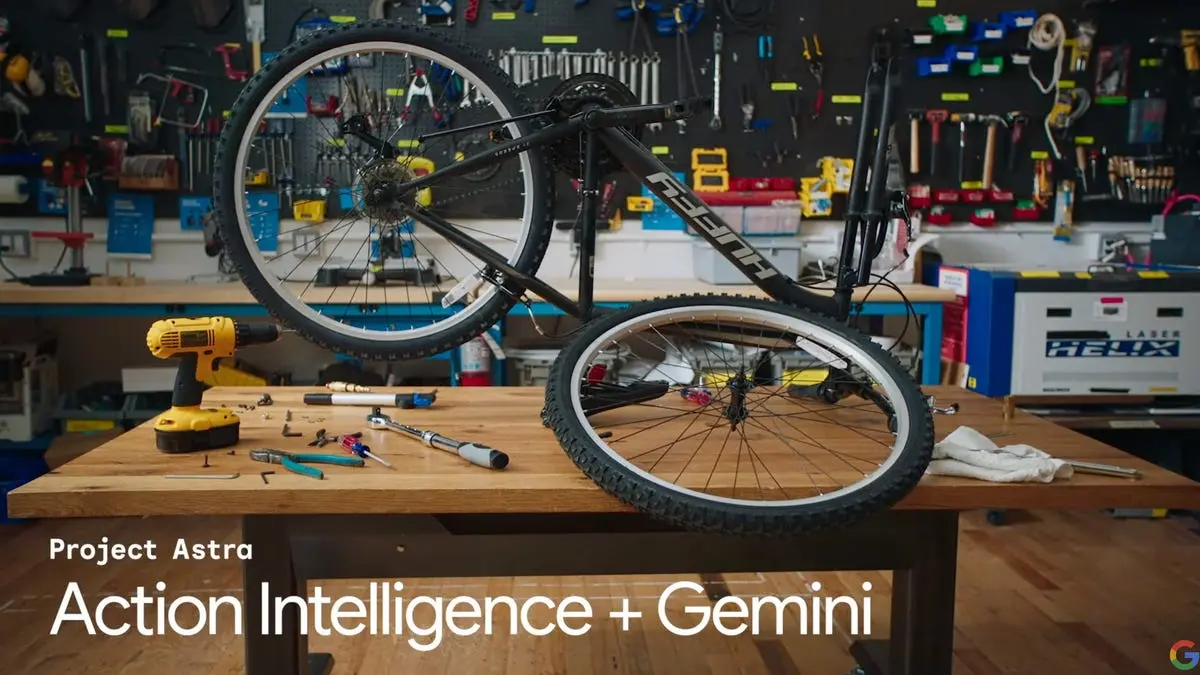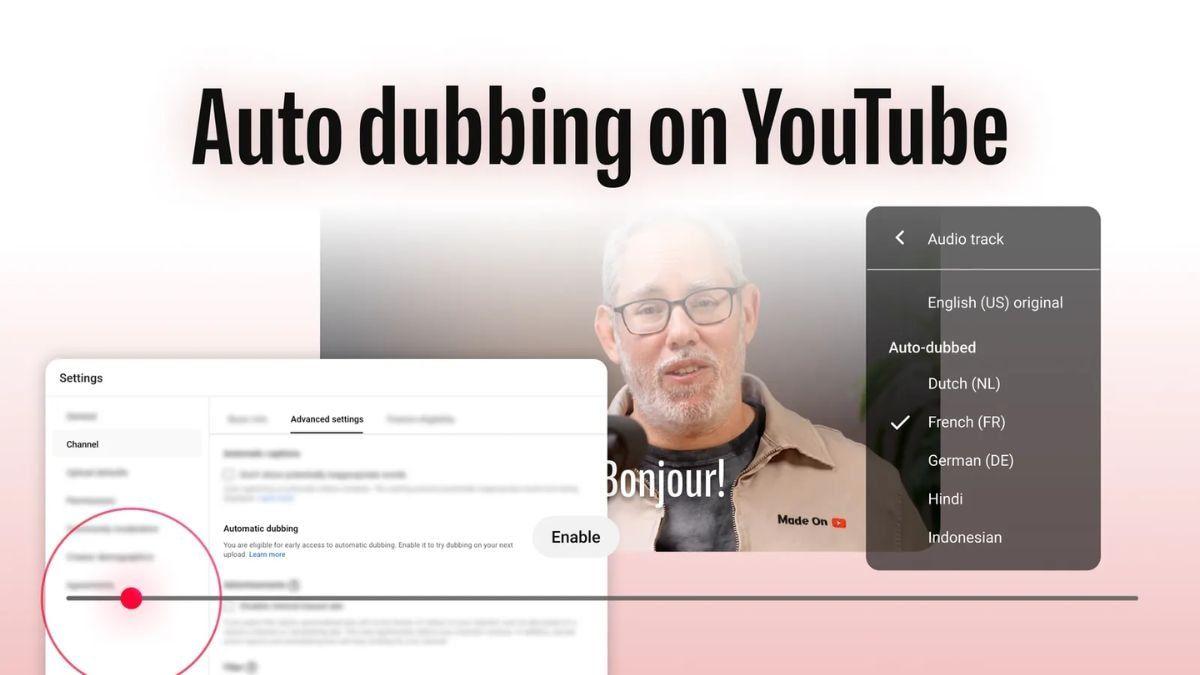Google Restructures AI Teams: DeepMind Absorbs More Units to Accelerate Development
2 Sources
2 Sources
[1]
Google folds more AI teams into DeepMind to 'accelerate the research to developer pipeline' | TechCrunch
As it looks to accelerate the pace of its AI development, Google is further streamlining the teams building its AI services, platforms, and tools. On Thursday, Logan Kilpatrick, who leads product for Google's AI Studio developer platform, said in a post on X that Google's AI Studio team and the team developing the API for the company's Gemini series of models will be moving under Google DeepMind. Google DeepMind, formed in 2023 from a merger of Google's DeepMind team and the Google Brain team from Google Research, is the AI R&D division behind many of Google's more recent AI product innovations, including Gemini. "This move will allow us to double down on our already deep collaboration and accelerate the research to developer pipeline," Kilpatrick wrote in his post. "The mission for our team stays the same." Jaana Dogan, an engineer on one of the teams moving to Google DeepMind, said in a post on X the reshuffling will help to make DeepMind's work "publicly available in ways that [weren't] possible before." "Better APIs, more open source, more tools, you name it ... it is just the very small percentage of what's coming next," she wrote. TechCrunch reached out to Google for more information and will update this post if we hear back. Google's folding of dev-focused AI teams into its Google DeepMind org comes after the company moved the team behind its Gemini-powered chatbot, also called Gemini, to DeepMind. At the time, Google CEO Sundar Pichai said the reorg was intended to "keep increasing the pace of progress" of Google's AI development. Google has also moved its models, research, and responsible AI teams to DeepMind in recent months. In audio from a December Google all-hands meeting obtained by CNBC, Pichai described the company's Gemini chatbot as having "strong momentum," while also acknowledging "we have some work to do in 2025 to close the gap and establish a leadership position there as well." "Scaling Gemini on the consumer side will be our biggest focus [in 2025]," Pichai reportedly said. "I think it's really important we internalize the urgency of this moment, and [the] need to move faster as a company. The stakes are high."
[2]
Google folds more teams into DeepMind to 'accelerate the research to developer pipeline' | TechCrunch
As it looks to accelerate the pace of its AI development, Google is further streamlining the teams building its AI services, platforms, and tools. On Thursday, Logan Kilpatrick, who leads product for Google's AI Studio developer platform, said in a post on X that Google's AI Studio team and the team developing the API for the company's Gemini series of models will be moving under Google DeepMind. Google DeepMind, formed in 2023 from a merger of Google's DeepMind team and the Google Brain team from Google Research, is the AI R&D division behind many of Google's more recent AI product innovations, including Gemini. "This move will allow us to double down on our already deep collaboration and accelerate the research to developer pipeline," Kilpatrick wrote in his post. "The mission for our team stays the same." Jaana Dogan, an engineer on one of the teams moving to Google DeepMind, said in a post on X the reshuffling will help to make DeepMind's work "publicly available in ways that [weren't] possible before." "Better APIs, more open source, more tools, you name it ... it is just the very small percentage of what's coming next," she wrote. TechCrunch reached out to Google for more information and will update this post if we hear back. Google's folding of dev-focused AI teams into its Google DeepMind org comes after the company moved the team behind its Gemini-powered chatbot, also called Gemini, to DeepMind. At the time, Google CEO Sundar Pichai said the reorg was intended to "keep increasing the pace of progress" of Google's AI development. Google has also moved its models, research, and responsible AI teams to DeepMind in recent months. In audio from a December Google all-hands meeting obtained by CNBC, Pichai described the company's Gemini chatbot as having "strong momentum," while also acknowledging "we have some work to do in 2025 to close the gap and establish a leadership position there as well."
Share
Share
Copy Link
Google is reorganizing its AI teams by moving more units under DeepMind to streamline development and accelerate the research-to-developer pipeline. This strategic move aims to enhance collaboration and speed up AI innovation.

Google's Strategic AI Reorganization
In a significant move to accelerate its artificial intelligence development, Google is further consolidating its AI teams under the Google DeepMind umbrella. This restructuring aims to streamline the company's AI services, platforms, and tools, marking a crucial step in Google's AI strategy
1
.Teams Affected by the Reorganization
Logan Kilpatrick, product lead for Google's AI Studio developer platform, announced on X (formerly Twitter) that the AI Studio team and the team responsible for developing the API for Google's Gemini series of models will be integrated into Google DeepMind
1
. This follows a previous reorganization where the team behind the Gemini-powered chatbot was also moved to DeepMind1
.Google DeepMind: The AI Powerhouse
Google DeepMind, formed in 2023 through the merger of Google's DeepMind team and the Google Brain team from Google Research, has been the driving force behind many of Google's recent AI innovations, including the Gemini model series
1
. The consolidation of these additional teams under DeepMind's umbrella is expected to foster deeper collaboration and accelerate the "research to developer pipeline"1
.Anticipated Benefits and Future Developments
Jaana Dogan, an engineer on one of the teams transitioning to Google DeepMind, expressed optimism about the move. She suggested that this reorganization would make DeepMind's work more accessible to the public, potentially leading to improved APIs, increased open-source contributions, and the development of more tools
1
.Related Stories
Google's AI Ambitions and Challenges
The restructuring reflects Google's broader strategy to maintain its competitive edge in the rapidly evolving AI landscape. In a December all-hands meeting, Google CEO Sundar Pichai acknowledged the company's "strong momentum" with the Gemini chatbot while also recognizing the need to "close the gap" and establish a leadership position in the AI field
1
.Pichai emphasized the urgency of the moment and the need for Google to move faster as a company. He highlighted that scaling Gemini on the consumer side would be a primary focus for 2025, underscoring the high stakes involved in this technological race
1
.Implications for Google's AI Future
This reorganization is part of a series of strategic moves by Google to consolidate its AI efforts. In recent months, the company has also integrated its models, research, and responsible AI teams into DeepMind
1
. These changes are designed to increase the pace of progress in Google's AI development and strengthen its position in the competitive AI market.As Google continues to reshape its AI divisions, the tech industry watches closely to see how these organizational changes will translate into technological advancements and market leadership in the rapidly evolving field of artificial intelligence.
References
Summarized by
Navi
[1]
Related Stories
Recent Highlights
1
Elon Musk merges SpaceX with xAI, plans 1 million satellites to power orbital data centers
Business and Economy

2
French Police Raid X Office as Grok Investigation Expands to Include Holocaust Denial Claims
Policy and Regulation

3
UK launches formal probe into xAI as Grok continues generating sexualized images without consent
Policy and Regulation








